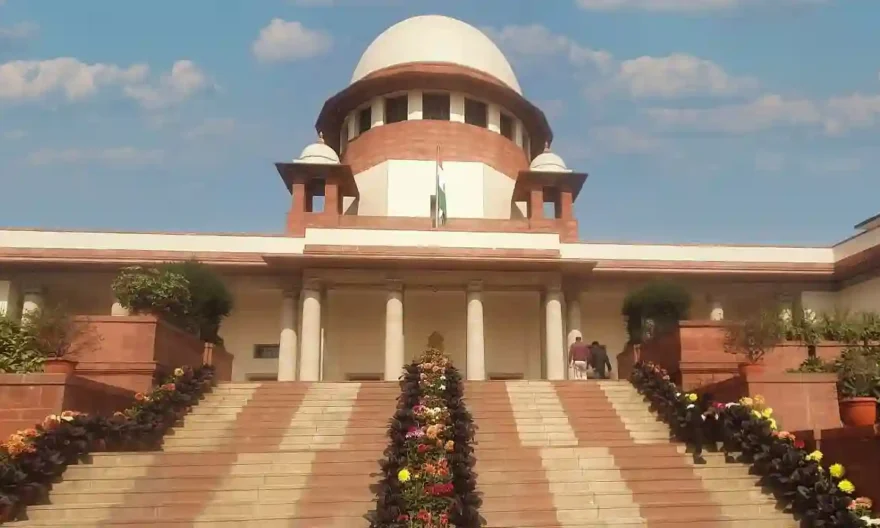
The Supreme Court on Monday rejected a PIL filed by BJP leader and advocate Ashwini Kumar Upadhyay seeking renaming of historical places and cities which he claimed are currently named after “invaders”.
A bench of Justices KM Joseph and BV Nagarathna slammed the petitioner for what it saw as a petition that violated the Constitution’s secular principles.
“We are supposed to be secular and to defend the Constitution. You are concerned about the past and seek to impose its burden on the current generation. Everything you do in this manner will cause more disharmony,” the bench stated.
The Court stated that the petitioner is selectively reexamining the past and took issue with labelling an entire community as barbaric.
Advocate Upadhyay’s petition, filed through advocate Ashwani Kumar Dubey, asked the Home Ministry to form a Renaming Commission to determine the historical names of places renamed by ‘barbaric foreign invaders’ in order to maintain sovereignty and secure other fundamental rights.
It also requested that the Central and State governments be directed to update their websites and records, which amount to around a thousand in number.
Alternatively, it was requested that the Archaeological Survey of India be directed to compile a list of such names under the citizens’ Right To Know under Article 19 of the Indian Constitution.
“You are selectively revisiting the past. India is now a secular nation. Your finger is pointed at a specific community that has been labelled barbaric. Do you want to keep the country under boil? “Justice Joseph made a remark.
“In terms of metaphysics, Hinduism may be the greatest religion. Please do not belittle it. The entire world is watching us. Even today. I am a Christian, but I am also interested in Hinduism and have attempted to learn more about it. Try to comprehend its greatness. Do not use it for a particular purpose,” Justice Joseph stated.
“That is why it is a way of life, Hinduism is a great religion and it does not tolerate bigotry,” Justice Nagarathna said.
“In fact, Hindus have donated land to churches in Kerala, where I am from,” Justice Joseph stated.
According to Justice Nagarathna, the country is dealing with a slew of other issues that must be addressed first.
“Our country has so many issues to deal with. Because Hinduism is a way of life, India has assimilated everyone. We can live together as a result of this. The British divide and rule policy caused schism in our society. Let us not go back to that. Don’t bring religion into it,” Justice Nagarathna stated.
“We must keep in mind that the Court is tasked with enforcing fundamental rights under Article 32 of the Constitution. According to the preamble, India, or Bharat, is a secular country. This was upheld by nine judges. A country cannot be a prisoner of its own past. India is committed to the rule of law, secularism, and constitutionalism, with Article 14 ensuring both equality and fairness in state actions,” the bench stated.
“We are celebrating our 7th anniversary of independence, but there are many ancient historical cultural religious places named after brutal foreign invaders, their servants, and family members. Successive governments have not taken steps to correct the barbaric act of invaders, and the injury continues,” the petition stated.
However, the Court made it clear today that, while India has been invaded numerous times, it cannot be erased from history by renaming places.
“Can we rewrite history and pretend they never invaded?” Justice Joseph asked.
“That is a fact of history that you cannot change. Yes, foreign invaders have ruled us. We’ve been invaded several times, and history has played a role. What are you attempting to accomplish? Have we not heard about other issues in our country?, “Justice Nagarathan inquired.
Advocate-petitioner Upadhyay stated that Constitutional protections cannot be given to invaders.
“Hindus, a minority in nine states, were wiped out in Afghanistan. According to my understanding, this Constitution is not intended for foreign barbaric invaders,” advocate Upadhyay responded.
According to the bench, the principle of fraternity should take precedence over all else.
The Court stated, “A nation’s history cannot haunt its current and future generations to the point where succeeding generations become prisoners of the past. The golden principle of fraternity is of the utmost importance, and it rightfully finds its place in the Constitution’s Preamble. It means that only harmony will bring the country together.”
Advocate Upadhyay sought to withdraw his petition, but the bench denied him and proceeded to dismiss it.




